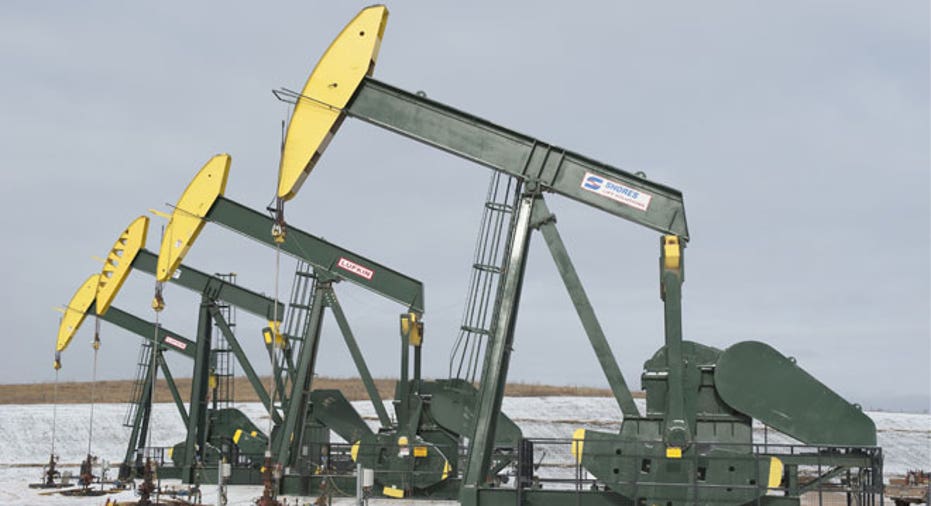Write-Downs Abound for Oil Producers

U.S. oil-and-gas producers have written down the value of their drilling fields by more in 2015 than any full year in history, as the rout in commodity prices makes properties across the country not worth drilling. A group of 66 oil and gas producers have taken impairment charges totaling $59.8 billion through June, according to a tally by energy consultancy IHS Herold. That tops the previous full-year record of $48.5 billion set in 2008, IHS says. In 2008, oil prices plummeted from above $140 a barrel at midyear to below $37 by year-end as the financial system's near collapse sent the global economy into recession. The drop was steep but relatively short-lived as growing demand from China and other emerging economies was expected to suck up global supplies. Now, with China's economy sputtering and U.S. production at its highest level in decades, prices aren't expected to return to the $100 level of recent years any time soon. Write-downs, or impairments, are taken by companies when the value of assets falls below the value on its books. For energy fields, that can mean that the price of leasing land, drilling and installing pipelines exceed the worth of whatever oil and gas is unearthed. Anadarko Petroleum, Chesapeake Energy and Devon Energy are among the large energy companies that have taken multibillion-dollar impairments this year, while dozens of smaller companies have made proportionally large write-downs. Writing down assets can shrink the pool of oil-and-gas reserves that are used as collateral for loans. Because many oil-and-gas producers spend more than they make selling commodities, abundant credit is crucial to them being able to keep going. These companies' shares are often valued on forecast production growth more than current profitability. This year's impairment tally is certain to grow, even if oil prices buck forecasts and move higher. U.S. securities regulators require exploration-and-production companies to value drilling properties and reserves according to energy prices over the previous 12 months. That means the formulas used to calculate their value at the end of June still included prices from the second half of last year, before oil prices had made much of their descent to their current price around $45 a barrel. "There's a disconnect between the 12-month average and reality," said IHS analyst Paul O'Donnell. "There will be pricing impairments for the next two quarters, at least." Prices used to determine asset values at the end of June were $71.50 a barrel for oil and $3.40 a million British thermal units for natural gas, IHS says. That compares with U.S. crude prices of $59.47 a barrel and $2.83 for natural gas on June 30. The consultancy expects the prices used at year-end to determine asset value will be around $50.50 and $2.80, respectively. At those prices, very few U.S. drilling properties, particularly shale fields, produce profits, analysts and bankers say. The write-downs have deflated some of the shale boom's highfliers. Chesapeake, which rose from a $50,000 startup to become the country's second largest natural-gas producer by gobbling up huge swaths of shale, has written off about $10 billion this year. That is about twice the Oklahoma City company's stock market value. Some of the write-downs can be chalked up to the drilling land grab that took place over the last decade. At the time many wildcatters quickly leased as much land as they could around new shale prospects before competitors caught wind and drove up prices. The consequence of doing so was that big prices were paid for properties that often turned out to be beyond the best drilling areas. "Companies are having to admit that when they made decisions about development and spending money to drill they anticipated higher prices, and their assets aren't worth as much as they were at $100 a barrel," said Becky Roof, a managing director at turnaround firm AlixPartners. At its peak and under the leadership of co-founder Aubrey McClendon, Chesapeake leased drilling land at a furious pace, staking claim to some 16 million U.S. acres, a land mass slightly larger than West Virginia. Mr. McClendon's race to grow was well received by investors when energy prices were higher. But when gas prices plummeted in 2009 due to the glut of fuel that his and other companies had produced, Chesapeake ran into financial troubles, made a similarly large write downs, and in early 2013 ousted Mr. McClendon. Now swaths of Chesapeake's territory have been sold or deemed uneconomic to drill. The IHS tally doesn't include large integrated oil companies, such as Chevron, which said in July that it booked $1.96 billion in impairments and $670 million in charges related to project suspensions and adverse tax effects tied to declining oil prices.



















